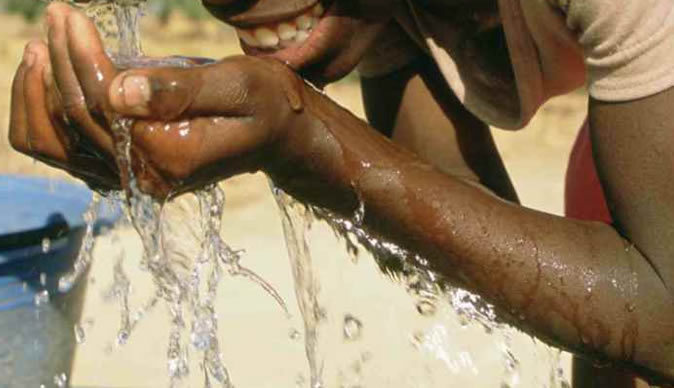


THE City of Harare tap water may not cause any diarrhoeal diseases in the short run but may, in the long term, cause cancers, affect brain development and lower intelligence quotient (IQ), which is a score derived from tests designed to assess intelligence. Of late there have been some contradictions over whether or not tap water in the city is safe. While some medical research has shown that the water is hazardous to health, some recent tests publicised in the State media claimed the water was safe.
But the director of health services at the Harare City Council, Prosper Chonzi, told the Financial Gazette Tuesday that the water pumped into homes by the city council is only safe in as far as it may not contain coliform or any other type of bacterial contamination. The odour, greenish hue and particles that settle at the bottom after the water has been put in a container for some time are indicative of chemical contamination which could have long term health effects.
“We don’t pump water with bacterial contamination, so it may not cause residents to have diarrhoea, cholera or typhoid in the short-term, but the fact that the water sometimes has odour, and a greenish colour means that it could cause some long-term health problems,” Chonzi said.
The director of health services said that city water had some chemicals and heavy metals in it that could affect health in the long term, and these, he said, came mainly from industry as some companies disposed of their waste into the streams and channels that feed into the main water sources.
“The water has chemicals coming from fertilisers among other things and heavy metals such as mercury, magnesium and lead among others,” Chonzi said, adding, “These may, in the long-term, cause neurological problems — affect brain development, lower IQ — and also cause some cancers,” Chonzi said. He further said the city health department was concerned by this matter and was dealing with it as one of its priorities.
As such, it was working with the Environmental Management Agency in a bid to stop pollution of water by industries, as well as with some Public Health masters students who were undertaking a study to analyse raw water quality and determine the extent of contamination and its exact effects. “By end of July we should have a preliminary report on that,” Chonzi said.
Some cancers have been said to be caused by contaminated water. Chonzi said, while his department was yet to establish causality, “We may want to suspect that some of these cancers could be caused by quality of water.” The long term effects of current water quality could bear more heavily on the future generations, Chonzi said.
“We need to protect the generations to come. We don’t want them having low IQ from the impurities that are carried in the water,” he said. Insisting that the water impurities were not of the making of the city council but of industry and other informal business illegally polluting water sources, Chonzi told the Financial Gazette that currently the city was diligently procuring eight types of chemicals to treat water of any bacterial contamination at a monthly cost of US$3 million.
Recent reports that at least nine brands of bottled water on the marked carried contaminated water, have increased concern on people already sceptical of municipality water. Media reports fingered water brands not certified by the Standards Association of Zimbabwe (SAZ) as the following: Tingamira Purified Still Water; Super Choice; Well Pure; Nestle Purified Water; Border Still Streams Purified; Crystal Purified; Aqua Sport; Jojo Purified; and Century.
SAZ director –general, Eve Gadzikwa, was quoted saying her organisation had an obligation to inform the public on the status of bottled water sold to them. “SAZ undertakes regular checks on the bottled water company to verify continuous compliance to the standard,” Gadzikwa said.
Chonzi said his department was also concerned about some bottled water not meeting the required standard. According to him, bottled water, as with all other food and beverages sold to consumers needed to be also be approved by the city health department. “All water or food sold should have its quality checked by the Ministry of Health who then work with us through the Ministry of Local Government,” Chonzi said.
newsdesk@fingaz.co.zw